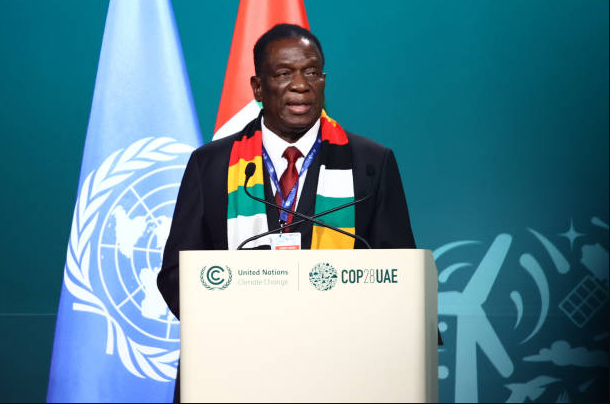The United States took significant action on Monday, imposing sanctions on Zimbabwe’s President Emmerson Mnangagwa, along with his first lady and several other government officials.
This move by the Treasury Department’s Office of Foreign Assets Control targeted three entities and 11 individuals, including Mnangagwa, Vice President Constantino Chiwenga, and retired Brig. Gen. Walter Tapfumaneyi.
Mnangagwa faces accusations of various wrongdoings, including protecting gold and diamond smugglers within Zimbabwe, allegedly directing government officials to engage in the illicit sale of these precious resources, and purportedly accepting bribes in exchange for favors. These actions, among others, have led to his sanctioning by the United States government.
President Joe Biden signed an executive order on the same day, terminating Zimbabwe’s national emergency and revoking specific sanctions previously imposed on the nation. The Global Magnitsky Human Rights Accountability Act is enforced by an executive order from the Trump administration, which serves as the legal foundation for the current sanctions.
US Signals Stronger Sanctions Policy on Zimbabwe

Treasury Deputy Secretary Wally Adeyemo clarified that these changes underscore that the sanctions are not intended to harm the people of Zimbabwe but rather target specific individuals responsible for corruption and human rights abuses.
In response to the sanctions, Zimbabwe’s government spokesman Nick Mangwana conveyed via Twitter that the impact extends beyond just the sanctioned individuals, affecting the entire leadership and corporate sector of the country.
US Secretary of State Antony Blinken emphasized that these designations signal a shift towards a more focused and robust sanctions policy concerning Zimbabwe. He attributed the need for such action to key individuals within the government, including Mnangagwa, who are allegedly involved in activities detrimental to Zimbabwe’s citizens, such as misappropriating public funds.
Emmerson Mnangagwa began his second term as Zimbabwe’s president in September, despite facing increasing scrutiny and international pressure over alleged corruption and human rights violations.
